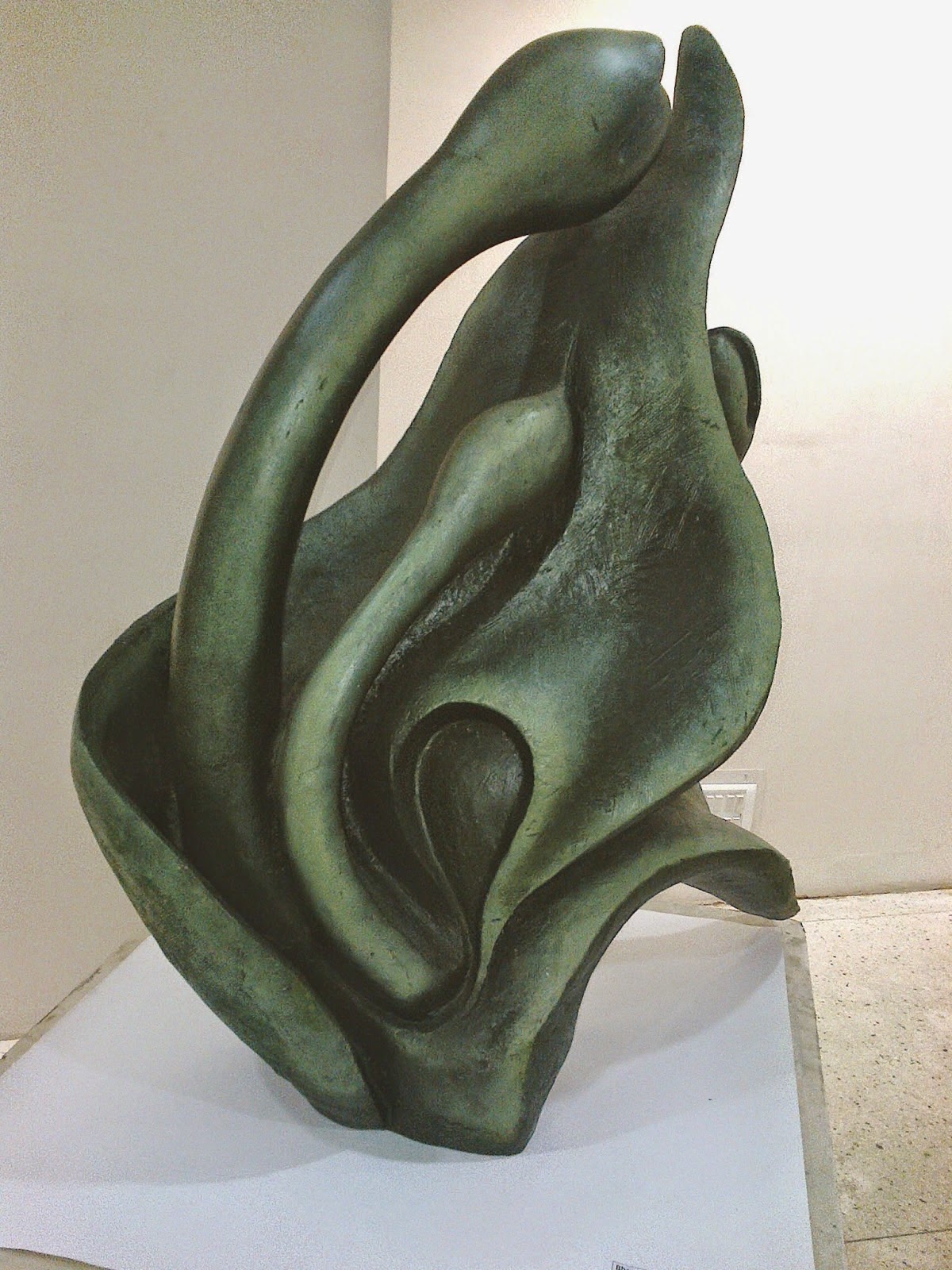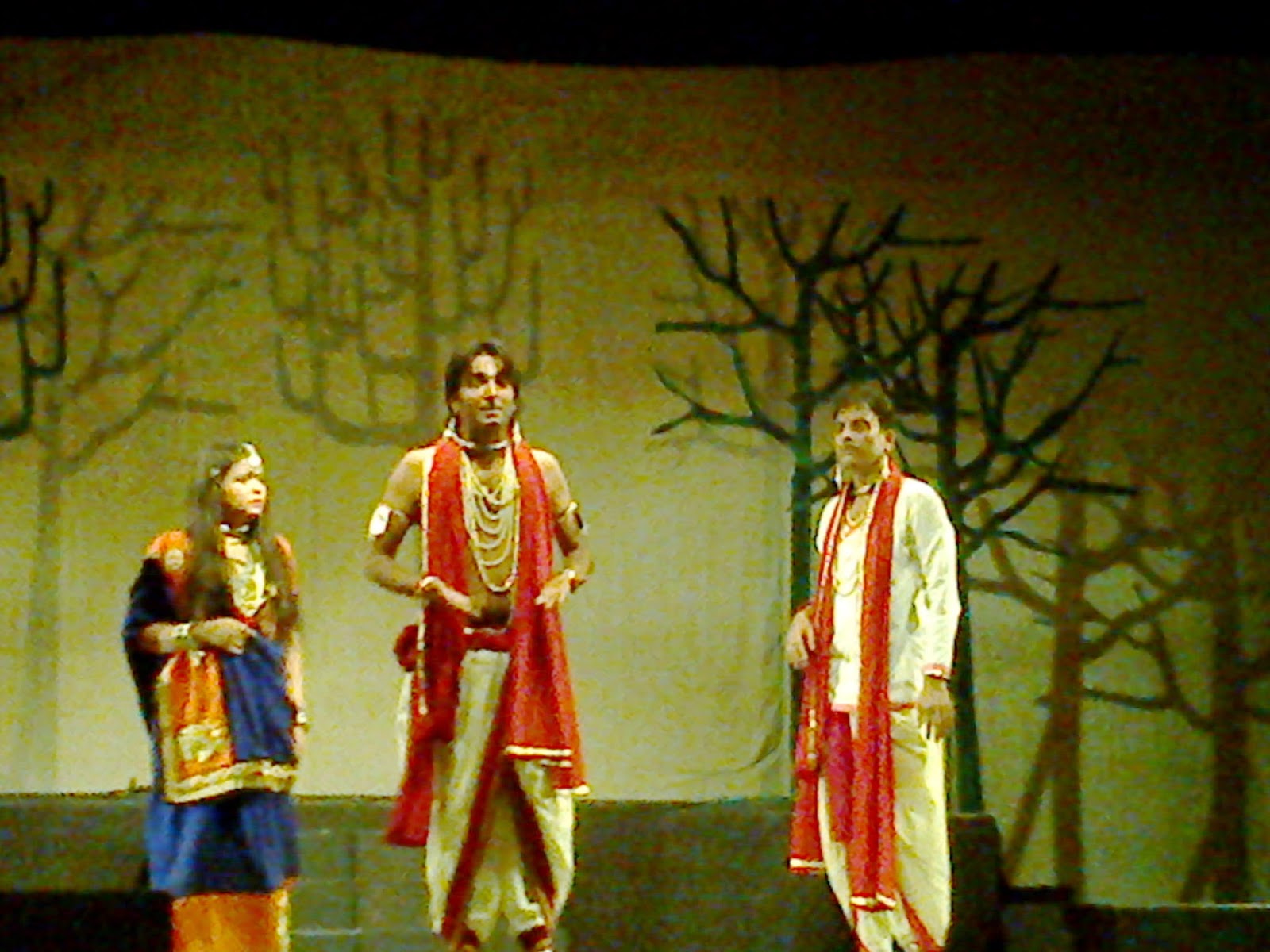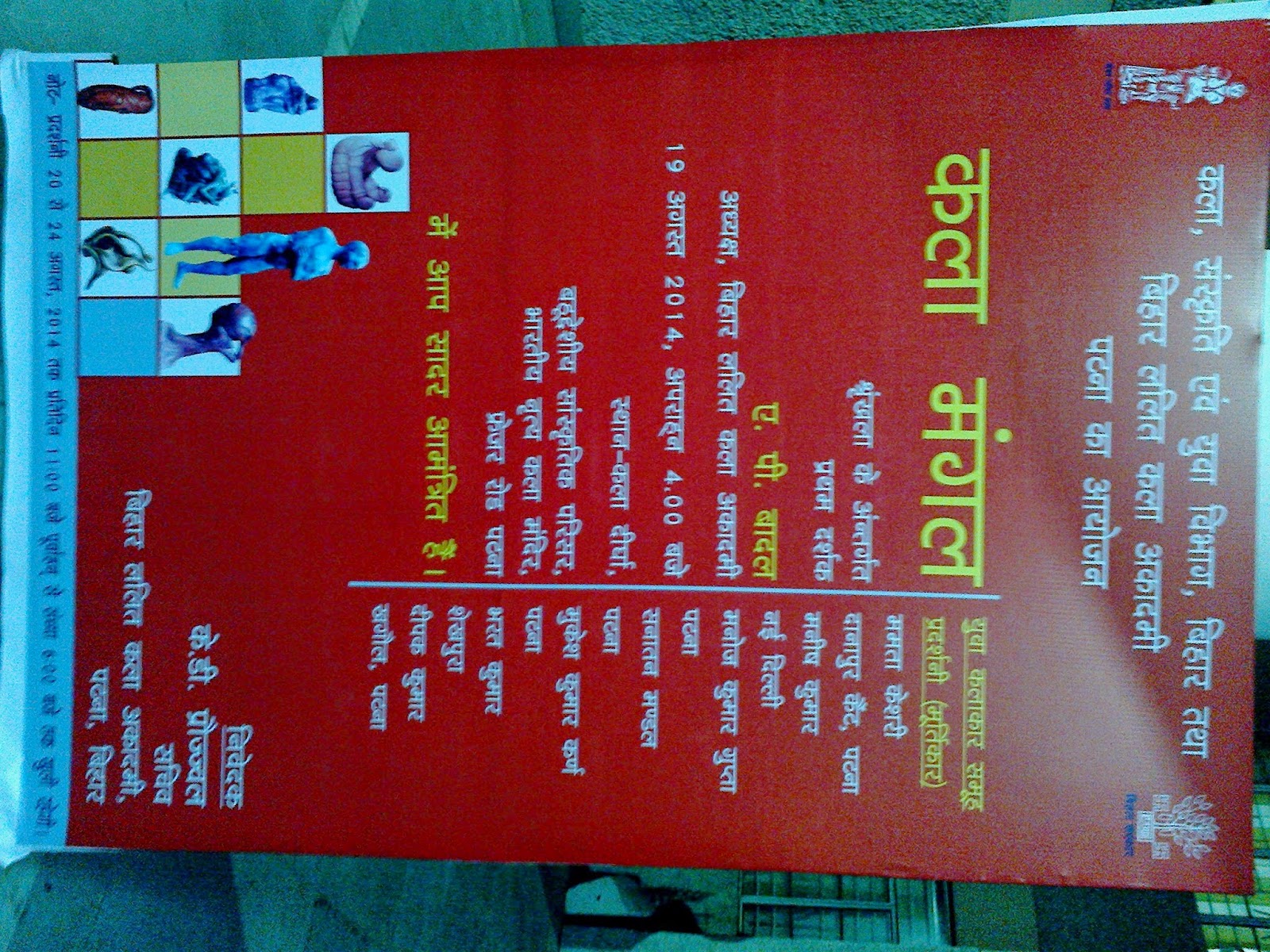'Haybadan' - a stage play was performed in Kalidas Rangalay on 21.08.2014.
(Presented by -'Anhad', Patna, Writer- Girish Karnard, reknowned actor and dramataist, Director- Raju Mishra)
Story- Haybadan means "one who has a head of horse". A horse-headed person symbolizes the fact that the person is neither a complete this (horse) nor that (a human). There are two bosom friends. One has a good face and the other has a good physique. After the entry of a woman in the scene who gets married to the man of good face, differences crop up over the issue of fidelity and love of that woman. Though the wife is living with her husband having the good face, she feels more attachment for husband's friend who is having more robust physique. The differences rise to the extreme and both decide to take the lives of each other. Both dies being beheaded by each other. Now a Goddess appears and tells the woman to just join the heads to the respective torsos. While joining heads to the torsos, the heads are interchanged and thus both get their lives again. The question arises here, whose wife the woman is. One has the husband's head and other has husbands's torso. Again a fierce dispute takes place though somehow both agree to the advice of a saint that the woman should live with the man who has husband's head.
After passage of some time, both men feel that their respective torsos are also reverting to the earlier state of strength matching with their respective heads. Again, the wife feels dissatisfied with her husband and wants to go to the other man who is having the head of his husband's friend. She sends the husband to other city on the pretext of purchasing a toy and herself goes to the jungle her husband's friend live in. The husband also returns and finds his wife with his friend. Both friends again try to sort out the problem by negotiation but they ultimately reach to the conclusion that they can't live together so they again deliberately murder each other. The wife just remains an onlooker as she perceives that both friends can't live together so lets them die. She also commits suicide after the mutual murder of his husband and his friend.
Very meticulously, the play shows that the pursuit of completeness is only a mirage. Just be satisfied with what you have. And the way of completeness is your jolliness and laugh. Interestingly, when at the end of the play, the horse-headed creature says that he is satisfied that he has now both head and torso of a horse but still regrets that he has no voice of horse. Then a child goes nearer to the horse-bodied man and gives some tickles to his body. The horse-bodied man laughs making sound as .hehehehehehe.... the voice of horse and thus his completeness as a horse is gained.
































































